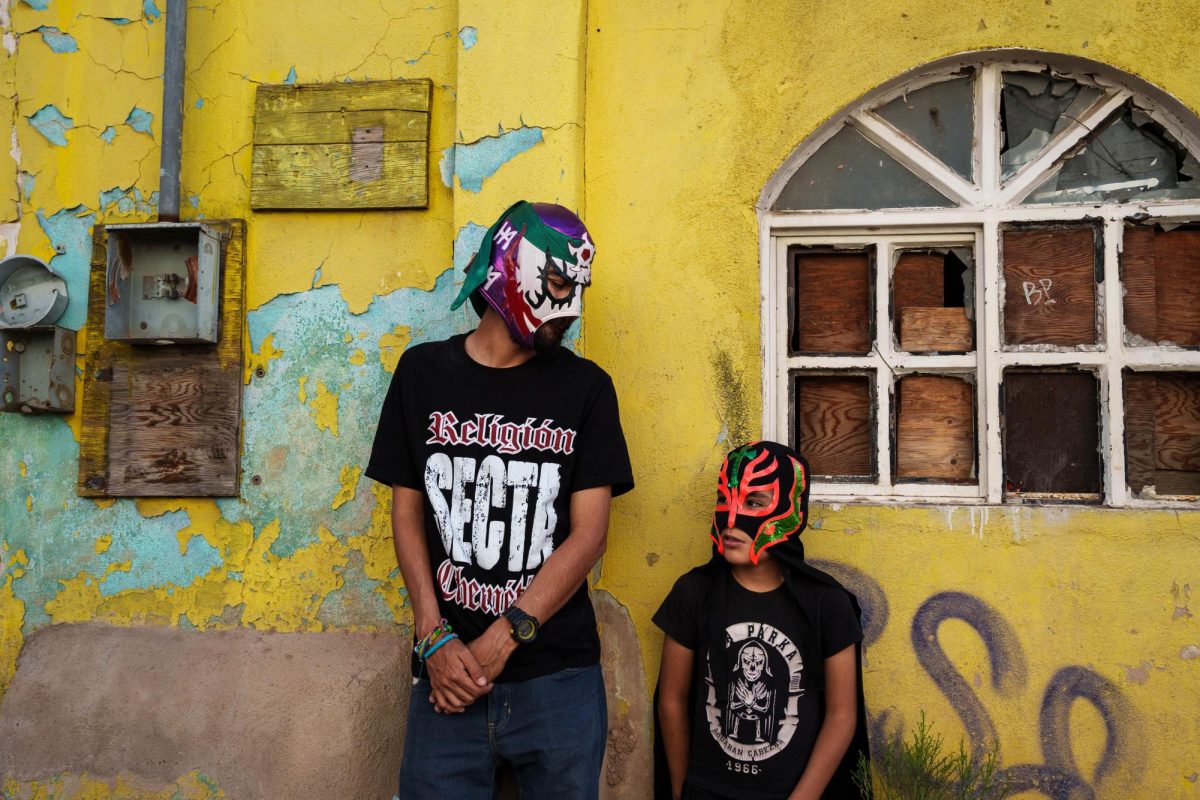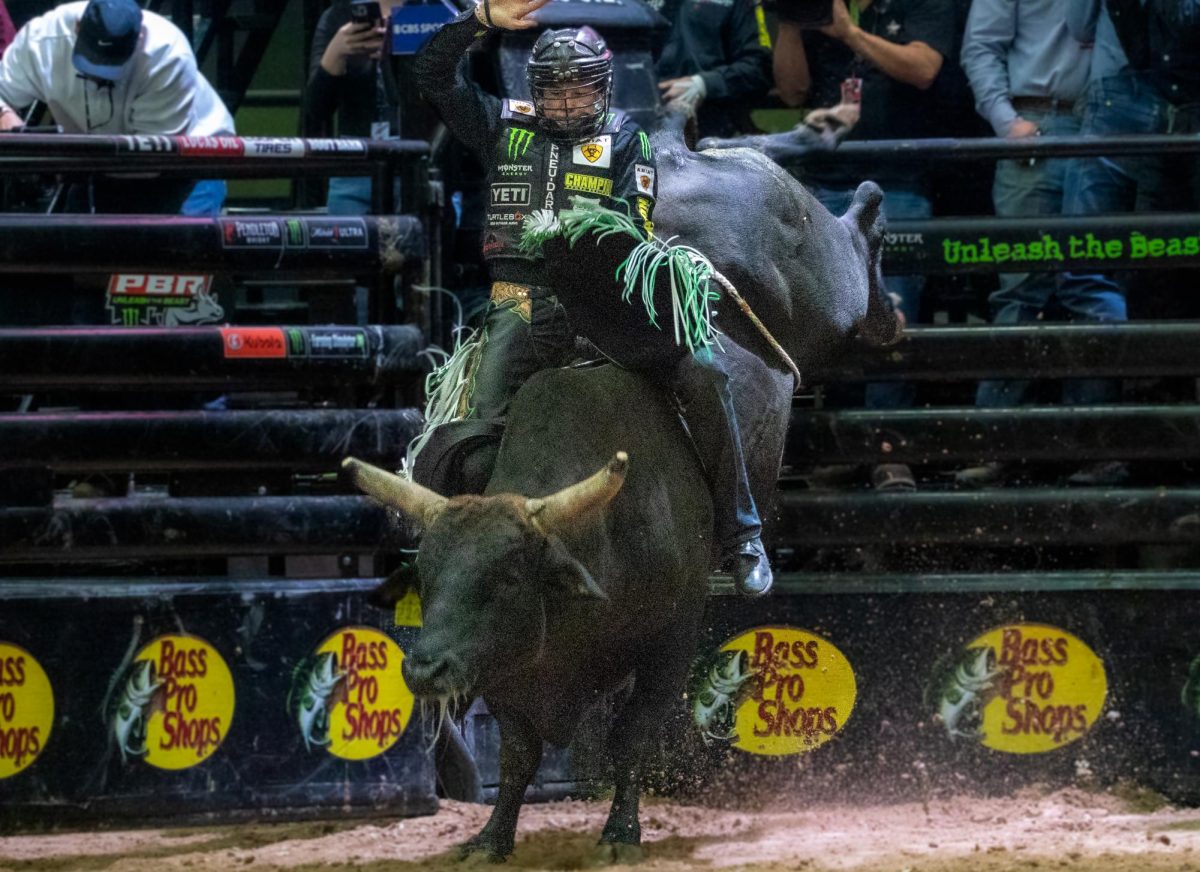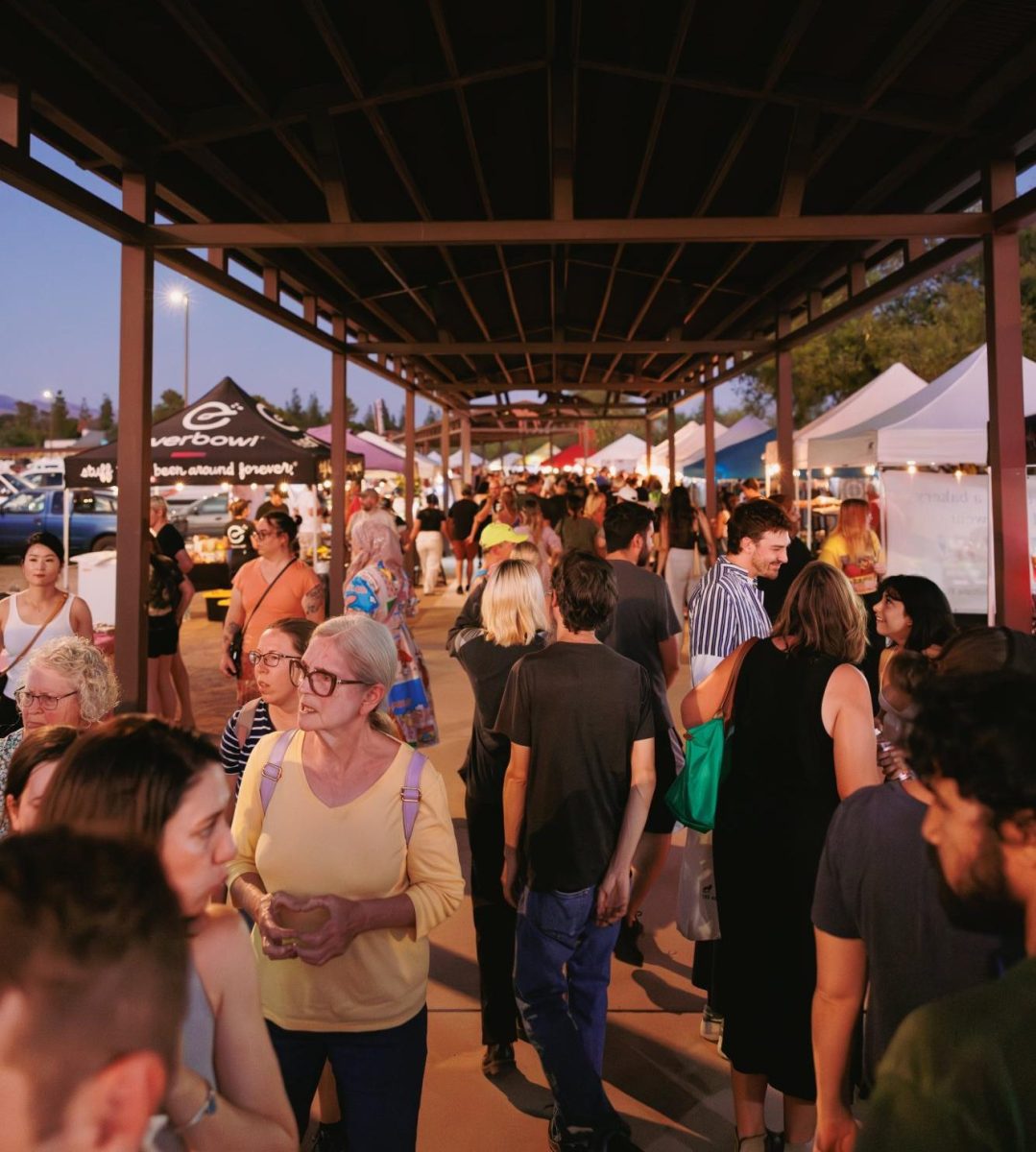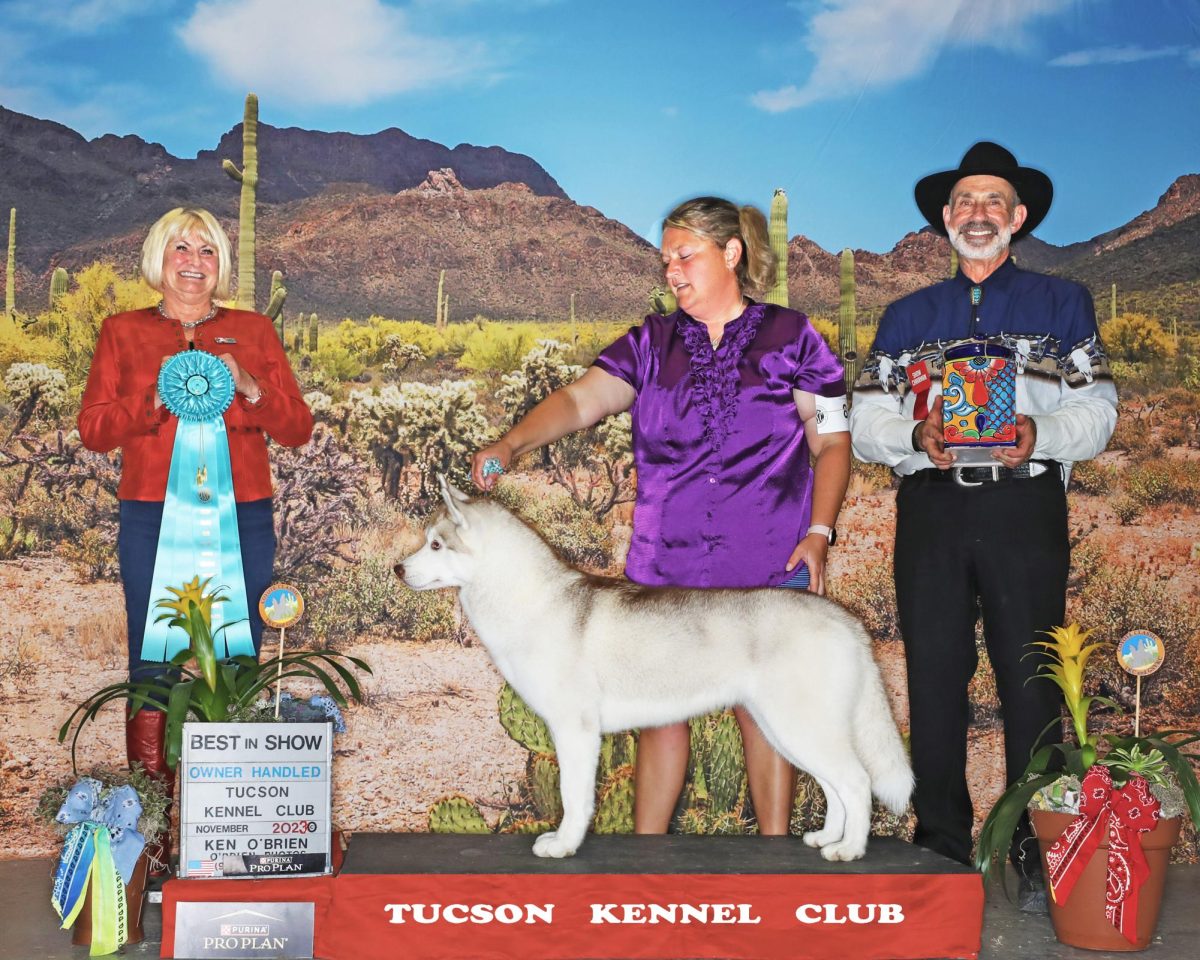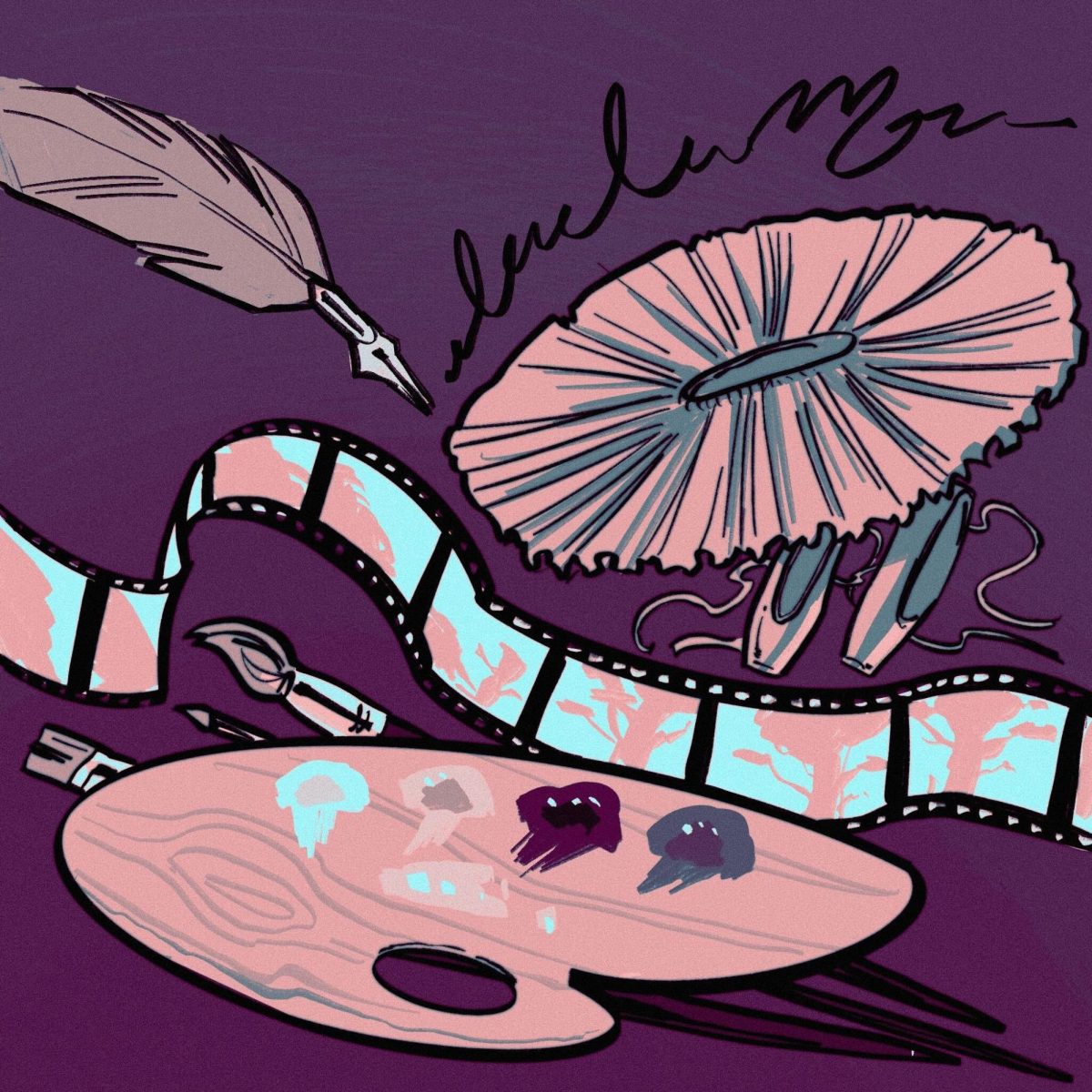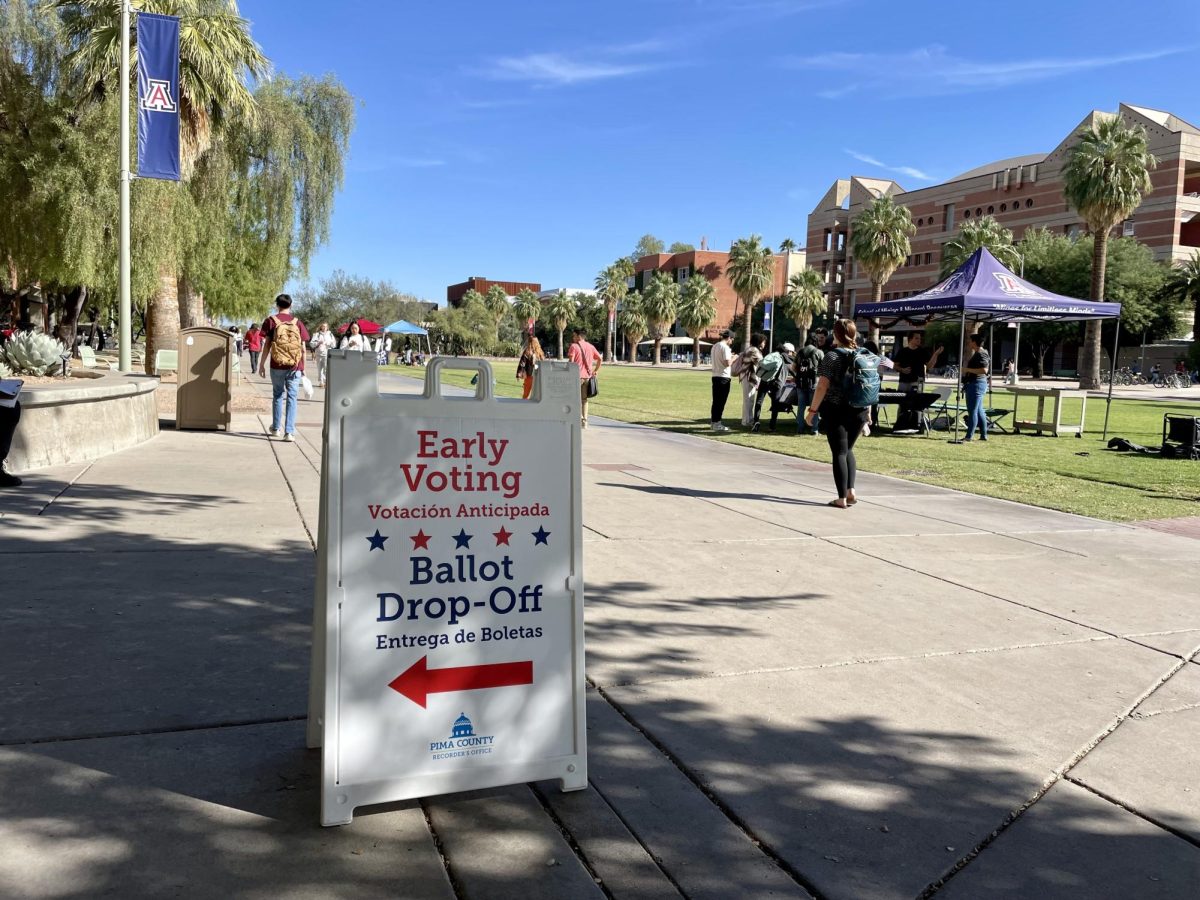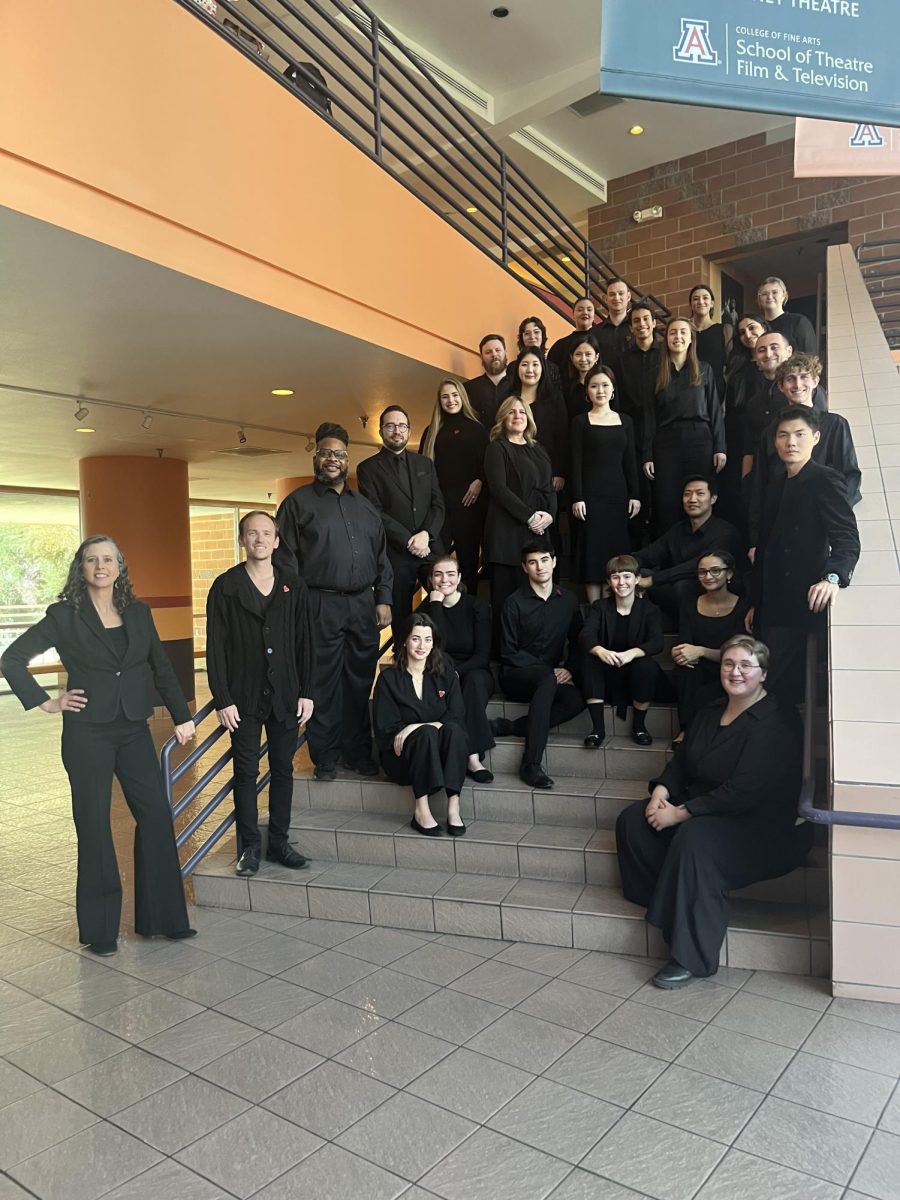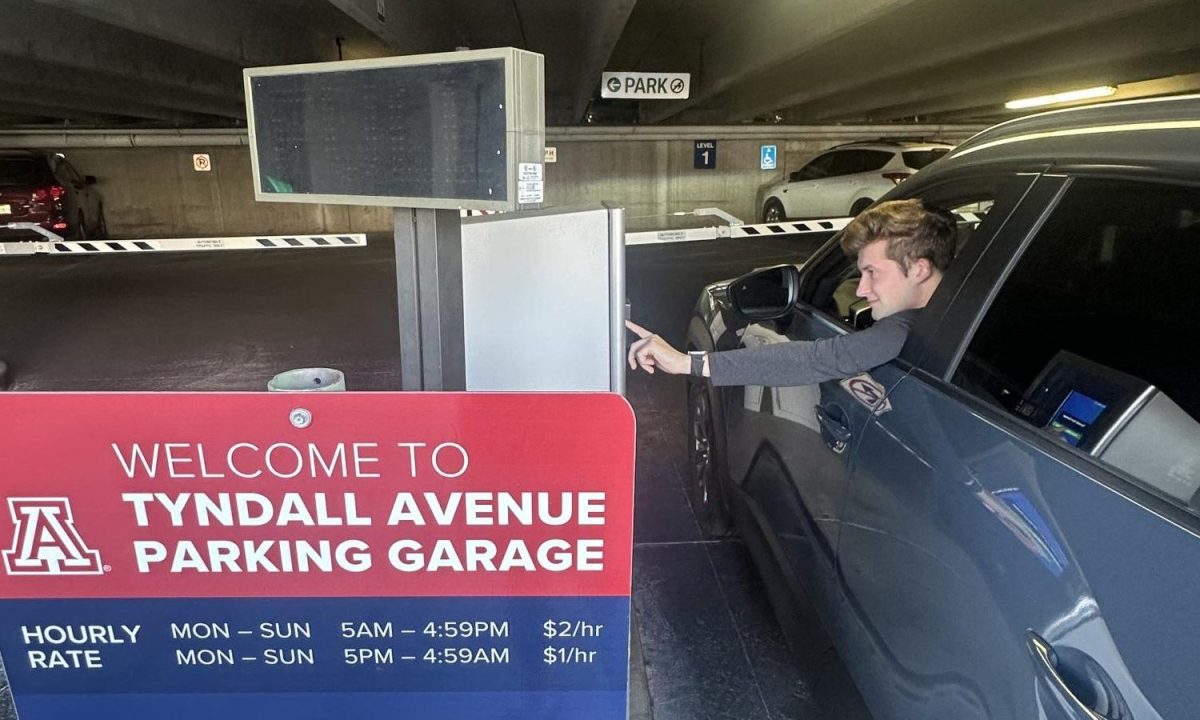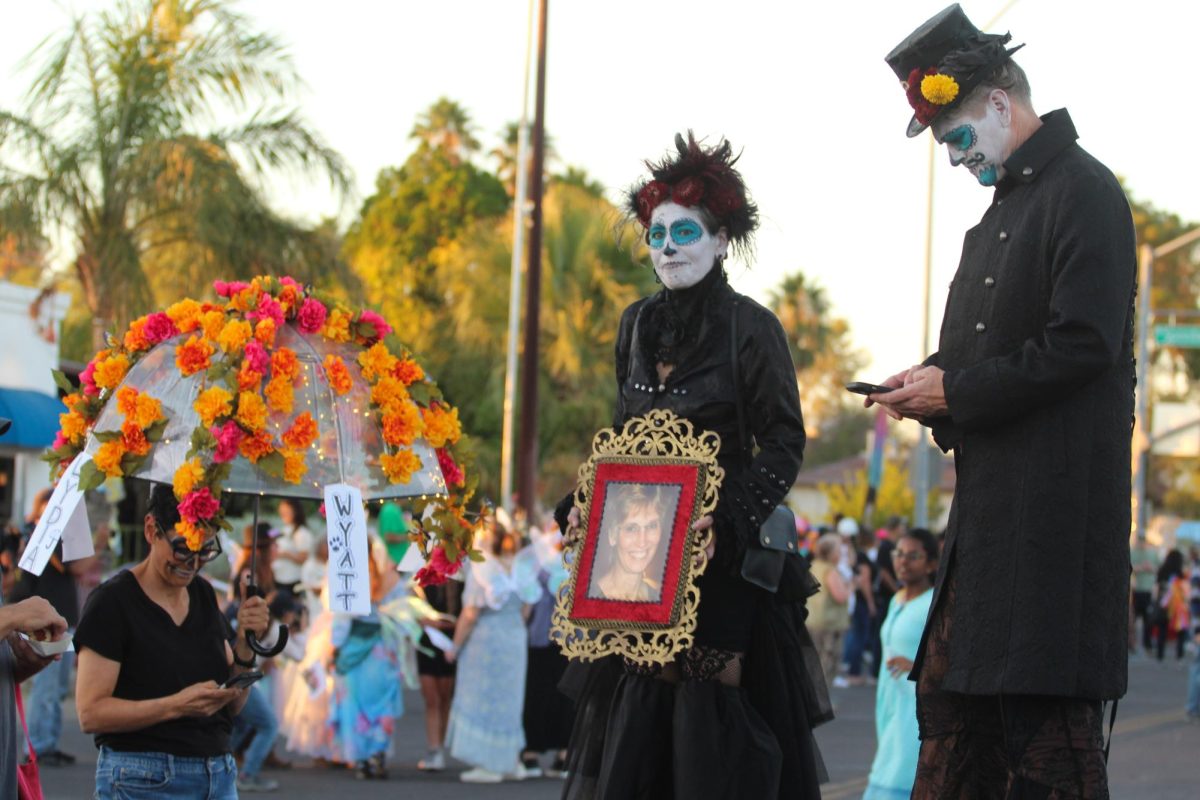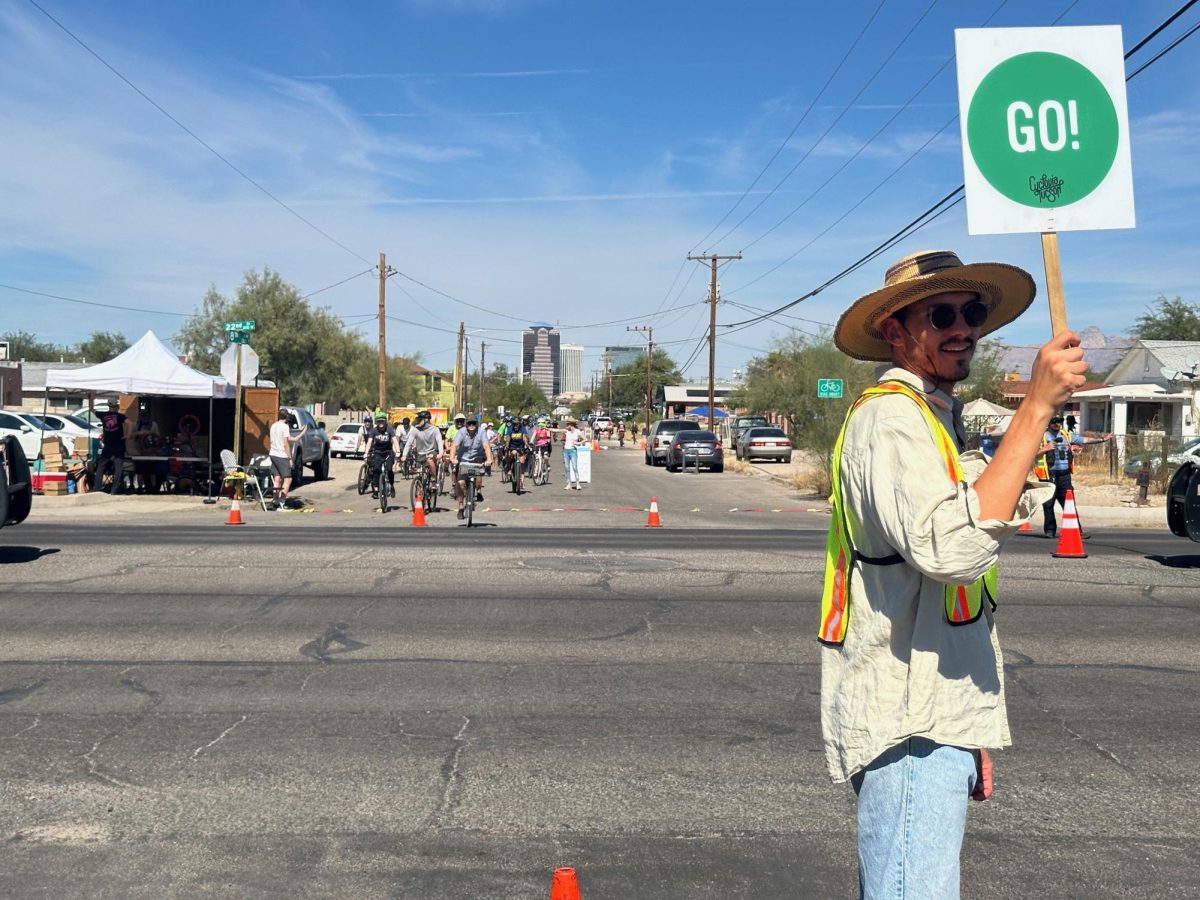The wrestling may be staged, but the community created by lucha libre is anything but scripted.
Lucha libre, or “free fight,” is often known as professional Mexican wrestling, with roots tracing back to the late 1860s. The luchadores, or wrestlers, wear colorful masks that not only conceal their identities but embody their personas.
In his upcoming exhibition, “Borderland Masks,” Fulbright scholar, photographer and University of Arizona graduate student Andrés Caballero shifts the spotlight from luchadores to the families who passionately follow lucha libre in their community.
The exhibit follows the lives of two families in Phoenix and two in Nogales, Sonora, who have found community and a sense of belonging through the sport.

Caballero said he remembers attending matches with his family in Mexico City and watching low-budget lucha libre films, but it was the underlying themes that left a lasting impression on him.
“Mexican wrestling is ingrained in Mexican culture in so many ways,” Caballero said. “Religion, Catholicism, Indigenous heritage—all of that is represented in some way or another during these matches. I was very interested in that and that’s why I began exploring, going to these events and taking photos.”
The exhibition features photographs of the four families, shares a piece of each person’s story and invites visitors to step into their world through an immersive 360-degree experience.
“You’re going to be inside of their houses, seeing them in their daily activities, playing football, or in a bar just talking to people,” Caballero said. “That immersive experience, for me, is what I want—just so you kind of get to know them on an intimate and personal level.”

In addition to the exhibit, Caballero is working on creating a podcast based on “Borderland Masks.” This semester, he’s working alongside Sama Alshaibi, a Regents professor and director of the Racial Justice Studio.
The Racial Justice Studio, which was founded in 2020 amid the Black Lives Matter movement, is an Arizona Arts initiative that studies anti-racism through the arts. It produces the Race/Remix podcast, which highlights artists whose work or knowledge helps create a more equitable future.
“I’m really excited because, right now, we’re doing great work with finding ways that Racial Justice Studio can be also an umbrella for these interdisciplinary projects that are happening with arts roots,” Alshaibi said. “That even goes across the university.”
Caballero, who has explored the world of lucha libre in his previous work, is now broadening his focus to themes of migration, identity and the U.S.-Mexico border in relation to the sport.
“This is more than just a spectacle, it’s a tradition for them, a family tradition,” Caballero said. “Their parents used to do it, and they take their children now as well. Especially the families that are here in Phoenix—they cannot go back to Mexico because they don’t have papers. They’ve been here for 22 or 23 years, and this is a way where they can connect to their Mexican roots.”
“Borderland Masks” is supported by Caballero’s 2024 Mellon-Fronteridades Graduate Fellowship, a $6,000 award that has allowed him to travel between Phoenix and Nogales, Sonora.
The Fronteridades initiative, established by the Confluencenter for Creative Inquiry in 2019, collaborates with fellows to bring attention to voices from the U.S.-Mexico border that often get overlooked.
“If you look at the narratives about the border in mainstream media, they tend to be negative. They tend to focus on crises, migration, and especially the politics of migration. There is a tendency to present these narratives in a negative light and even to criminalize some of these voices and communities,” said Javier Duran, director of the Confluencenter. “In reality, border communities exist and they have a lot of very positive things happening. They create a lot of different narratives and stories. Our project was an effort to amplify and elevate these stories and the daily lives of border communities in general.”

Caballero said changing someone’s perception of the border is challenging, but he finds it rewarding to show the region’s different sides. The family members in his exhibition have adopted character names and chosen unique masks, much like professional luchadores they follow. Their identities are intentionally hidden, represented solely by their chosen personas.

Andrés Caballero working in his studio.
“My idea is that if some people here on the border see these photos, they might feel connected to the stories. They might feel like they are in a place where they belong and they might feel hopeful,” he said. “I think that if they can relate to that person, for me, that’s more than enough. That’s a really positive thing that these projects can have.”
“Borderland Masks” will be on display from Oct.22-31, from 10 a.m-5 p.m. weekdays at the Lionel Rombach Gallery, 1031 N. Olive Rd. A reception will be held from 4-6 p.m. on Oct. 24, featuring additional works by Vanessa Saavedra and Ulises Ramos.
Learn more at https://confluencenter.arizona.edu/events/borderland-masks
Arizona Sonoran News is a news service of the University of Arizona School of Journalism.



